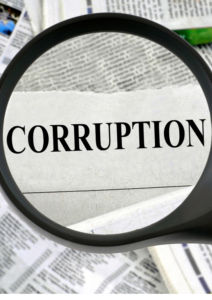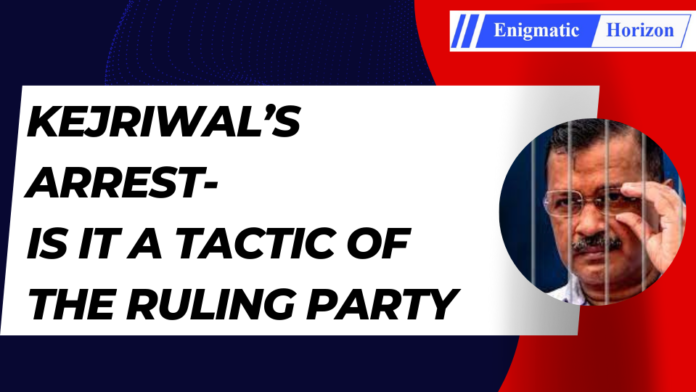Nupur Jha
On March 20th, 2024, the Enforcement Directorate (ED) arrested Delhi’s Chief Minister, Arvind Kejriwal. It’s a big deal because he’s the first sitting Indian CM to be arrested for a specific case.
This all stems from a policy change in 2021 where the Delhi government closed down government-run liquor shops, giving the green light for private businesses to open their own liquor stores. The idea was to make things better for customers and make more money for the state.
But why did Kejriwal end up in jail? Was it a genuine arrest, or was it part of the BJP’s plan to take out their competition before the elections?
To get the full story, let’s dive into what you need to know about this case.

Why Did It Happen and Is It Legitimate?
The Delhi government is facing accusations of corruption in a liquor-related case. Multiple agencies, including the Enforcement Directorate (ED), have accused Delhi’s Chief Minister, Arvind Kejriwal, of being the mastermind behind the scheme. Despite being summoned nine times by the ED, Kejriwal didn’t show up, leading to his arrest from his home.
As for a new policy introduced, which initially provided benefits and a 27% revenue increase, it quickly sparked controversies. Top officials denied these claims, saying the government was actually in a deficit of nearly 580 crore rupees. They accused some officials of taking bribes in exchange for liquor licenses.
But, is Kejriwal the Sole Culprit in This?
No, it’s not just Arvind Kejriwal involved in this case. Manish Sisodia, along with Satyendra Jain, K. Kavita, and Sanjay Singh, are also in jail. Initially, their party tried to stop the case by appealing to the Supreme Court, but they withdrew the appeal the very next day.
The Enforcement Directorate (ED) wants to keep Kejriwal in custody for ten days, calling him a main player. However, their lawyer argues that there isn’t enough evidence.
On top of all this, Kejriwal is refusing to step down from his position as Chief Minister, claiming he’ll run the state even from jail.
But this is unusual because usually, ministers resign in such situations as Jayalalitha or Lalu Yadav did. It’s a tough decision, legally, ethically, and logistically.
How Will This Impact the BJP?
The upcoming election in July poses a significant challenge for all candidates. While Kejriwal’s arrest has stirred up controversy, it has also brought some unity among opposition parties, particularly those who initially blamed him for corruption but are now rallying to his side.
The opposition is pointing fingers at the BJP, accusing them of using the Enforcement Directorate (ED) as a tool to eliminate their political rivals. Whether or not Kejriwal is guilty may be debated, it is also raising eyebrows as to why the BJP seems unaffected by the raids or arrests.
BJP itself is not immune to corruption or scandals. For instance, B.S. Yediyurappa, the former Karnataka CM, has faced accusations of involvement in land and mining scams and has a questionable track record. Another example is Himanta Biswa Sarma, often referred to as the “Amit Shah of Northeast.” Sarma, who was previously with the Congress party, switched to the BJP, and since then, any allegations against him seem to have disappeared.
 There’s suspicion that the government isn’t adhering to its own anti-corruption stance, which promises to hold anyone involved in corruption accountable. Because no BJP members or leaders have faced similar arrests so far.
There’s suspicion that the government isn’t adhering to its own anti-corruption stance, which promises to hold anyone involved in corruption accountable. Because no BJP members or leaders have faced similar arrests so far.
Regardless of whether CM Kejriwal is innocent or not, there’s a saying: “Where there’s smoke, there’s fire.”And It’s disheartening to witness a party that has built its identity around fighting corruption has many of its members in jail due to corruption charges.
